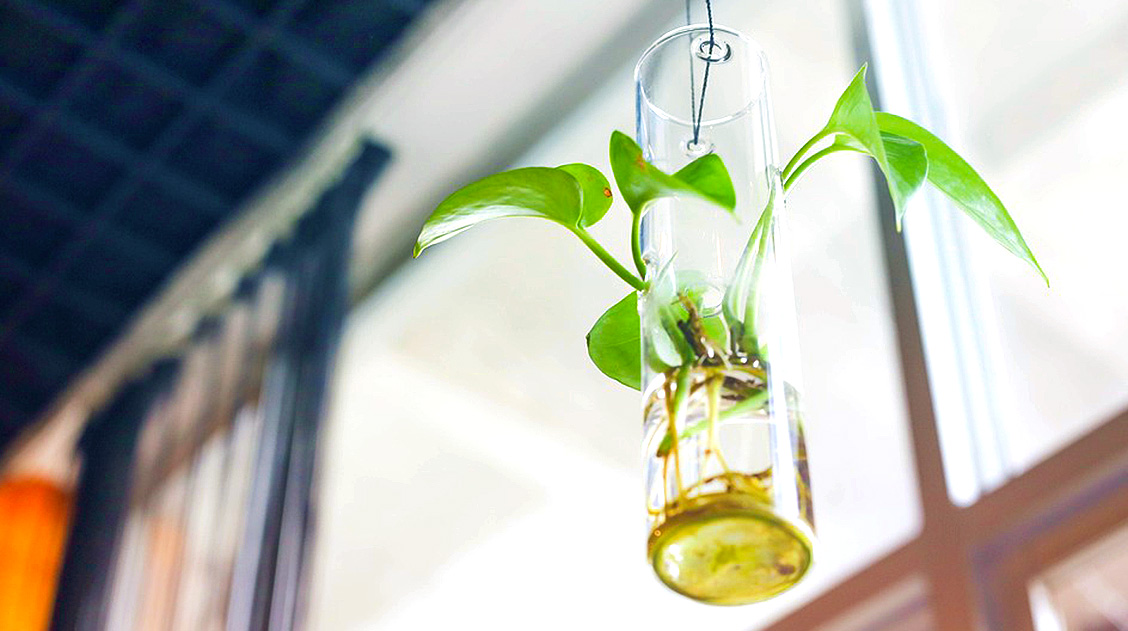
Six Ways Plants Can Be Used to Improve Health
Plants are some of the oldest living organisms on Earth. They have inspired advances in medicine, developments in art and literature, and contributed to the evolution of mathematics.
Recent research related to plants and health reveals the benefits of reintroducing plants into our daily lives as they become less visible in cities. A growing interest in ‘superfoods’ and new evidence of the impact of the gut-microbiome-brain axis on mental health have also revealed the benefits of different plants.
Here, we’ve provided six ways that plants can be used to improve well-being.
Plants and health
-
Community urban agriculture and gardening
The benefits of community gardening are various. In fact, research suggests that community gardening can lead to upskilling, increase job satisfaction, and improve well-being. And, importantly, collective urban agriculture and gardening help to develop a sense of community in urban areas which can greatly improve mental health. Gardening also promotes sustainable development.
A recent article in Land investigates the effects of community gardening in the US Rust Belt, specifically related to the inclusion of urban gardeners with refugee and immigrant status. The authors worked with the Greater Lansing Food Bank’s Garden Project, an organization that hosts more than 100 community gardens in the greater Lansing area.
Physical space, agency, personal wellbeing, and community were found to contribute to feelings of inclusion in community gardens. The authors note that
“The space provided a context for physical and mental wellbeing, which contributed to the environmental and community health of the garden, which in turn deepened relationships and increased wellbeing.”
In interviews with participants, feelings of ‘safety’, ‘comfort’ and improved mental well-being were recorded, revealing a positive relationship between caring for plants and health. This is an encouraging result for the future of community gardening.
-
Caring for indoor plants and health
Indoor plants are known to improve the air quality in homes. They may also lead to stress reduction and improved brain functioning. This is due to the potential effects of taking care of plants. In fact, just contemplating the idea of caring for plants has been found to have positive psychological effects. Increased attention, reduced blood pressure, and even academic achievement are among the many other benefits of maintaining indoor plants.
The act of caring for indoor plants was associated with increased mindfulness and awareness in a recent study published in International Journal of Environmental Research and Public Health. Conducting a survey of residents from different cities in China under increased urbanization, the authors found that self-reported mindfulness increased following people’s contemplation of caring for houseplants.
Strikingly, the number of people living in cities is set to increase by 68% by 2050. Finding ways to introduce nature into our daily lives is important in this context. By encouraging research in this area, we can better enhance quality of life as we make this transition.
-
Biophilic design
Research on indoor plants has also led to the creation of indoor environments that better connect humans and the natural environment. A lot of the research relates to the concept of biophilia. Biophilia assumes that people have an innate, or innately seek a relationship with, nature.
Biophilic design, in particular, focuses on creating a sense of realism in connection with outdoor, natural spaces by modifying indoor environments with plants and forest-type materials. A recent study suggests that being or ‘bathing’ in forested indoor areas can improve mental health by lowering fatigue and can potentially even increase productivity. Participants of the study were asked to self-report feelings of fatigue after spending time in a biotron greenhouse (an environmentally controlled chamber).
As part of the study, oxyhemaglobin levels (the most widely found protein in the blood) were assessed. In line with the results of their experiment, the authors propose an association between reduced levels of oxyhemaglobin and a reduction in fatigue.
So, research on plants and health is uncovering new, non-clinical treatments that improve mental health and help to regulate feelings of fatigue.
-
Hair care
An article in the Express highlights the benefits of English Ivy for people who regularly dye their hair at home. This is because it can help to reduce the levels of chemicals found in dye products. English Ivy is best placed in bathrooms as it can help to prevent the build-up of mould. This article advises that you keep your English Ivy away from pets, however, due to the potential harm it can cause.
Another plant, aloe vera, is also recognized for its protective effect in hair. Reviewing the benefits of fermented raw materials, the authors of a study in Molecules describe the use of aloe vera in anti-itch hair dye. This dye, which contains bioferment from plant biomass, can both reduce greasiness in hair and moisturize the scalp.
Advances in research continue to uncover the different ways plants can be used to our advantage. And using plants in smaller acts of self-care can help create a routine in which we center our own wellbeing.
-
Cacti and hyperglycemia
You might have heard of the term ‘functional foods’ across wellness magazines. Research on so-called ‘superfoods’ has become increasingly popular. We’re now looking for ways to use food, and therefore plants, to our advantage to live longer and happier lives.
In fact, as noted by the authors of a paper published in Medicina,
“Foods are no longer only being consumed to promote satiety or promote nutritional requirements but are increasingly being used to potentially prevent or manage chronic diseases in the form of functional foods.”
Due to the presence of polyphenols and phenolic acids, prickly pear cacti have been reported to have a positive hypoglycemic effect. This has implications for the treatment of Type-2 diabetes as the plant is useful in glycemic control. Consumption of this plant is, therefore, associated with a significant increase in the uptake of glucose.
In fact, we can use prickly pear cacti as an ingredient in a number of staple foods. Specifically, prickly pear cladode can be used as an ingredient in functional pasta. Importantly, participants expressed interest in this type of functional pasta.
These findings show that there is a wider interest in the relationship between plants and health. With ‘functional foods’ becoming increasingly marketable, we’re likely to see a surge of them in the coming years with a focus on different aspects of health.
-
Plants and gut health
The microbiome-gut-brain axis (MGBA) might play a role in the modulation of stress. This is because certain bacteria are thought to have ‘psychobiotic’ effects. As a result, they can affect changes in the microbiota. This is good for mental health, as they can ‘improve mood, reduce anxiety, and enhance cognitive function’.
In fact, a review recently published in Nutrients suggests that the gut microbiome could be the ‘missing link’ in research related to mental health and psychological disorders. The authors discuss different works assessing the effects of 30 different plants on the MGBA. Specifically, they look at the possible relationship between medicinal plants, the MGBA and conditions like depression, anxiety, and insomnia.
Plants that help to improve mental health by affecting microbiota composition are termed phyto-psychobiotics. These plants are attracting increased interest. For example, St. John’s Wart, botanical name Hypericum perforatum, was identified as a plant of interest. Because of its ability to reverse changes to the gut microbiota, it might be useful as a treatment for depression.
Research into how diet affects the development of chronic diseases is ongoing. However, fewer studies investigate how certain plants affect the microbiota. Therefore, the authors call for further in-depth studies on this relationship.
Why plants?
The research on plants and health continues to grow. And it’s increasingly evident that being more mindful can help to center our mental health in daily life. Mindfulness can be difficult to practice. Activities related to caring for and looking after plants and ourselves can help ground us in the moment.
Whether we’re bringing ourselves closer to nature, trying to improve the air quality in homes, or improving our physical health, the science supports the idea that plants can help to improve health.










